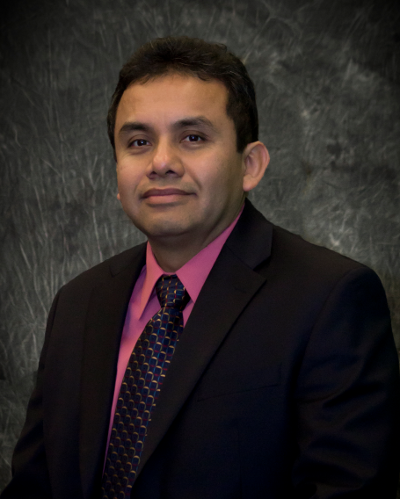
Francisco Muñoz-Arriola, assistant professor of hydroinformatics and integrated hydrology, will present "Engineering Water Sustainability: Leveraging Sources of Predictability" at 3:30 p.m., Sept. 10 in the Hardin Hall auditorium (room 107).
Water resources sustainability can be seen as the economy-serving society while maintaining water supplies to human activities and ecosystems. Considering sustainability as the ultimate goal of sustainable development, pathways to achieve water sustainability are integrated by current process-understanding and future changes. In order to achieve water sustainability in a changing climate, these diagnostic and prognostic perspectives of water states are explored. Muñoz-Arriola will illustrate some experiences in diagnostic and forecast of water states in a changing climate. Using water-cycle modeling tools, the Hydroinformatics and Integrated Hydrology Research Group will explore the interplay of water-climate, agro-ecosystems and ecosystems to improve our prognostic abilities. Ultimately, Muñoz-Arriola will propose a scheme to tackle some of the main challenges regarding water-state predictability.
Muñoz-Arriola is an assistant professor of hydroinformatics and integrated hydrology in UNL's Department of Biological Systems Engineering. He holds courtesy appointments in the Department of Earth and Atmospheric Sciences and the School of Natural Resources. He is also research fellow of the Daugherty Water for Food Institute and volunteer for science at the USGS's California Research Center. For more than ten years, Muñoz-Arriola has worked to understand the interdependence between water and climate while both are regulated by human activities. His research focuses on model integration and development of information technologies, both aimed to improve the predictability of extreme hydrometeorological events and their effects on ecosystems and agro-ecosystems sustainability across scales. He has been a part of the research networks Climate Hydrology Academic Network for Governance and the Environment (CHANGE) and the Hydrometeorological and Climate Disasters Network (REDESCLIM) on both sides of the U.S.-Mexico border. In both cases, he aims to build tools and establish bridges of collaboration between the U.S. and other countries' research groups and agencies on water sustainability and climate.
More details at: http://go.unl.edu/q2zw